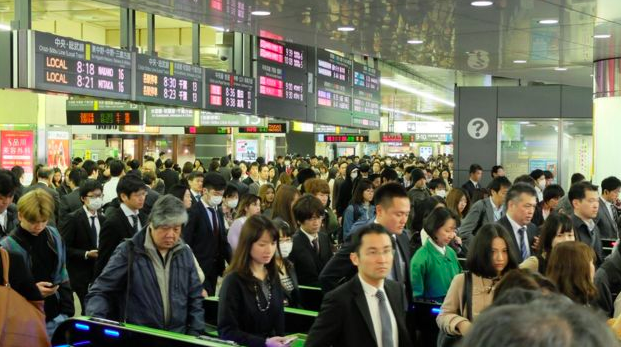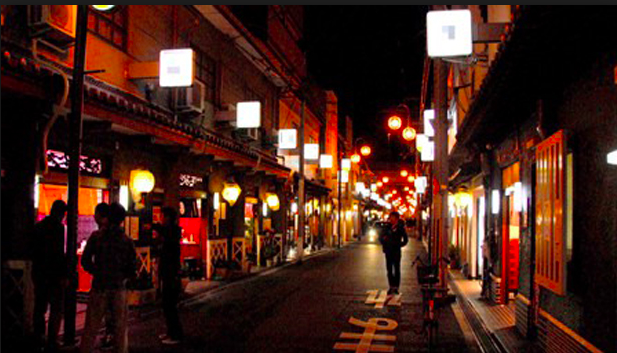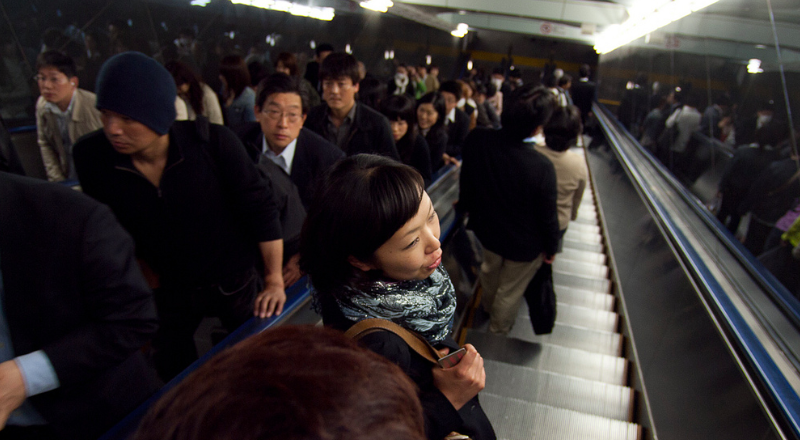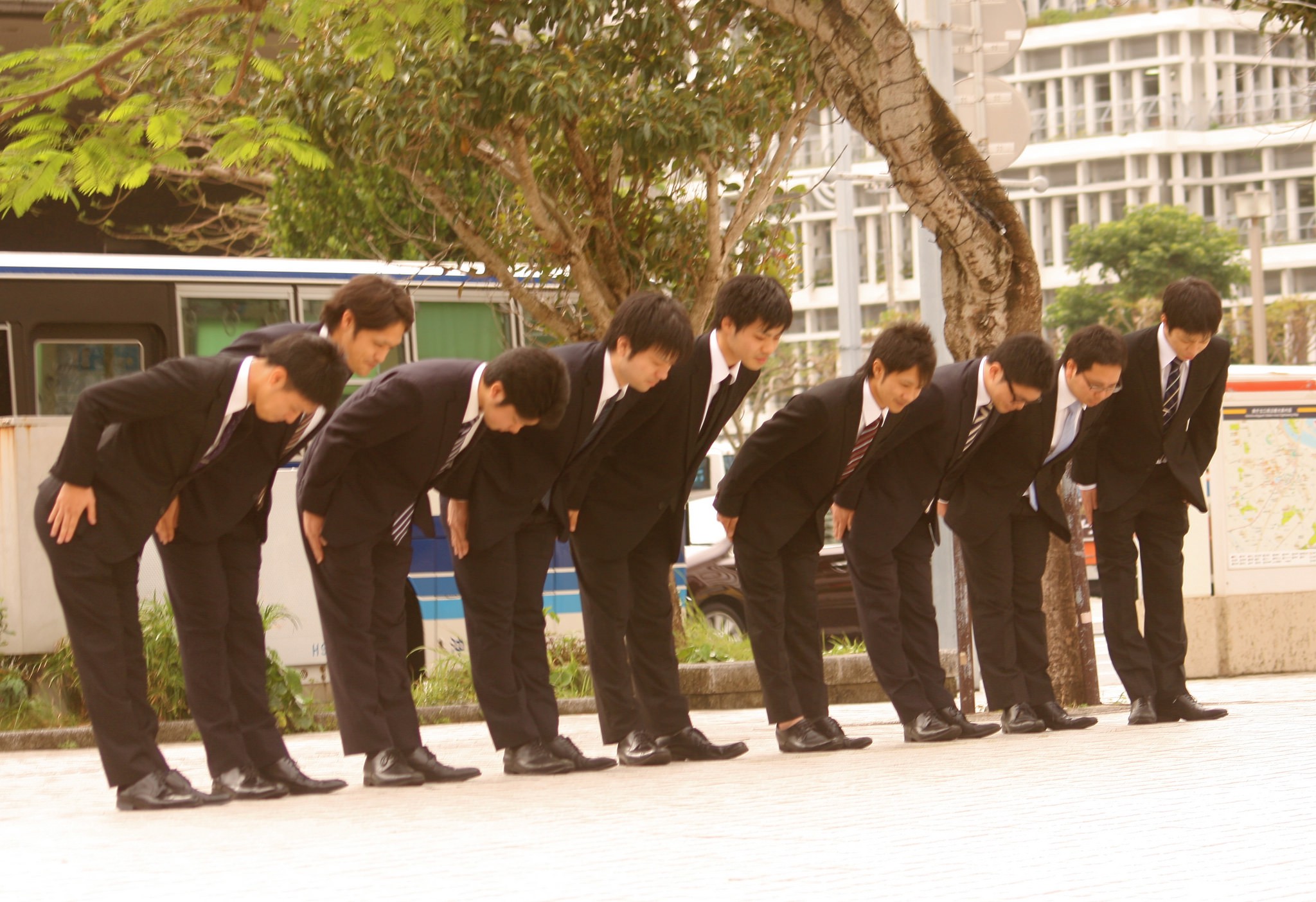 Photo by Devin Edwards on Unsplash
Photo by Devin Edwards on Unsplash
Sexual desire and sexual activity have been declining in Japan for years, and this is a major cause of Japan?s significant decrease in their birth rate. Because Japan has one of the lowest birth rates in the world and its population is on course to shrink dramatically by the middle of the century, every five years the government carries out a detailed survey of attitudes to sex and marriage.
The Japan Family Planning Association reported 45% of young Japanese women, and over 25% of men, ?were not interested in or despised sexual contact.? Here are five possible reasons why?
1. Work in Japan
People in Japan, and Tokyo in particular, work ridiculous amounts. For most people it comes down to two choices: work like mad as a single person and have a tiny apartment full of dirty clothes and half-eaten Cup Ramen containers, or get married. That way, the man goes off to work, and when he comes home after midnight, his dinner is sitting on the table covered in Saran Wrap, and there?s hot water in the tub. His wife and daughter are already fast asleep.
The young Japanese people of today grew up watching their parents live this life and it?s understandable that they are not thrilled about this option. Marriage isn?t a great choice; it?s just the second-worst option. For a man, it means he is working to pay for his wife. For a woman, it means a life of indentured servitude. A lot of people are apparently ?just saying no? to the whole thing.
 Commuters at Shinjuku Station during rush hours in Tokyo
Commuters at Shinjuku Station during rush hours in Tokyo
2. Prostitution in Japan
For a Japanese male it is possible to get sex almost anywhere, at any time, for little more than the price of a decent lunch. Anyone who?s been in Japan for even a short while has seen the rows of shops offering all the usual services. (As an aside, I?ll add that ?foreigners? aren?t allowed in but as long as you?re ?Japanese,? you are good to go. But Japanese racism is a whole other subject).
So prostitution has turned sex in Japan into a commodity. It?s something that?s available for purchase, like movie tickets. Sex isn?t an expression of love between two people, it?s something that can be bought or sold when necessary. The fact is that prostitution is widespread and its availability changes the way people view relationships.
 Colourful history of former red-light district in Osaka still glows
Colourful history of former red-light district in Osaka still glows
3. Japanese Social Relations
The society functions with robot-like efficiency because bosses tell employees what to do ? as do parents or teachers ? and one does it! There is a hierarchy. The ramen shop attendant doesn?t say: ?Hey boss, how about if, instead of two pieces of pork in the noodles, we try three?? That is not how things work in Japan. One does not challenge instructions or offer up original ideas, and Japanese definitely do not initiate conversation with strangers.
The reality is: people don?t have a lot of contact with each other. For Japanese, it?s insanely difficult to establish friendships and connections, which is no doubt why so many Host and Hostess Bars exist, so people can at least pay someone to talk to them.
Japanese people excel at social interactions when there are clearly defined roles: Boss and Worker, Clerk and Customer, Drunk salaryman and Gaijin. There are clear rules and precedents for those situations. But for two Japanese people to strike up a conversation while in line at the grocery store? Well, it?s hypothetically possible, like Dark Matter or something!
There is the ?social? side to sexual relations and the ?biological? side. The biological side (i.e. pure gratification) is catered to by the pornography industry, including the hentai manga culture, and by prostitution etc. And it?s true that the Japanese treat the biological side of sex in a much less puritanical manner than the West. It?s very prevalent and very available, and there?s very little shame attached to it.
But then you have the social side of sexual relationships. By ?social? it means the cultural and interpersonal baggage that gets attached to two ordinary people who decide to have sex or date or get married. And in Japan, the social weight of sexual relations is infinitely heavier than in the West.
Very few Japanese people date in the semi-casual manner that happens in the West. There?s very little ?dating for the sake of dating?. And there is practically no cohabitation of young couples outside of wedlock. It seems like people remain nearly completely virginal until it?s time to get married and have kids and as discussed previously marriage like sex is on the decline for similar reasons: long-working hours, a lack of women?s liberation, cramped living conditions, restrained social norms, and maybe a Confucian sense of filial piety that keeps people from living that ?Sex in the City? lifestyle.
 In Japan, the social weight of sexual relations is infinitely heavier than in the West
In Japan, the social weight of sexual relations is infinitely heavier than in the West
4. ?Too troublesome? or ?I can?t be bothered? attitude toward sex and marriage by young Japanese
These are the words used by both sexes most often when they talk about their relationship phobia. Romantic commitment seems to represent burden and drudgery, from the exorbitant cost of buying property in Japan to the uncertain expectations of a spouse and in-laws.
A woman?s chances of promotion in Japan stop dead as soon as she marries. ?The bosses assume you will get pregnant.? ?You have to resign. You will end up being a housewife with no independent income. It?s not an option for women like me? ?said a Japanese woman aged 32 working in the human resources department of a French owned bank. A fluent French speaker with two university degrees, she avoids romantic attachments so she can focus on work.
Around 70% of Japanese women leave their jobs after their first child. The World Economic Forum consistently ranks Japan as one of the world?s worse nations for gender equality at work. Social attitudes don?t help. The sense of crushing obligation affects men just as much. Amid the two-decade recession and unsteady wages Japanese men feel that the pressure on them to be breadwinning economic warriors for wife and family is unrealistic. They are rejecting the pursuit of both career and romantic success.
?It?s too troublesome? says a Japanese man aged 31 who works at a fashion accessories company as a designer and manager. Asked why he?s not interested in having a girlfriend. ?I don?t earn a huge salary to go on dates and I don?t want the responsibility of a woman hoping it might lead to marriage.? Japan?s media, which has a name for every social kink, refers to men like him as ?herbivores? or soshoku danshi (literally ?grass-easting men?). He says he doesn?t mind the label because it?s become so commonplace. He defines it as ?heterosexual man for whom relationships and sex are unimportant?.
Some experts believe the flight from marriage is not merely a rejection of outdated norms and gender roles. It could be a long-term state of affairs. ?Remaining single was once the ultimate personal failure,? says Tomomi Yamaguchi, a Japanese-born female assistant professor of anthropology at Montana State University in America. ?But more people are finding they prefer it.? Being single by choice is becoming a new reality?, she believes.
 ?herbivores? or ?soshoku danshi? (literally ?grass-eating men?) refers to men who are generally quiet, not very experienced, and somewhat appear to have lost their ?aggressive manliness.?
?herbivores? or ?soshoku danshi? (literally ?grass-eating men?) refers to men who are generally quiet, not very experienced, and somewhat appear to have lost their ?aggressive manliness.?
5. A Polluted Global Biosphere
Biosphere problems with oestrogen may be having a strong negative impact on sexual desire, though such environmental concerns are still only whispered.
As mentioned above, but yet very little talked about, plastics, fertilisers and pesticides are having a significant negative impact upon the global biosphere, particularly for developed and now developing countries? populations. We read about the negative affects that plastics are having in terms of our oceans and on sea life, but what is little known is that plastics, fertilisers and pesticides contain artificial oestrogens which are now found throughout the entire food chain. This female hormone is now being cited as affecting fish populations where males are becoming females. It is highly possible that such outcomes are also affecting human sexuality and sexual drives. Japan is a dominant Western society that has been exposed now for some generations.
 Biosphere problems with oestrogen may be having a strong negative impact on sexual desire, though such environmental concerns are still only whispered.
Biosphere problems with oestrogen may be having a strong negative impact on sexual desire, though such environmental concerns are still only whispered.
Japanese are inscrutable but its cultures are so unique and irresistible
For Japan the good and bad are two sides of the same coin. In Japan foreigners are always trying to understand what they see around them, and the only way it makes sense is by looking at the entire system, since the individual components don?t make any apparent sense. They are just crazy snapshots. A salaryman passed out drunk in a bush; a children being smacked by his mother in the grocery store; a family enjoying the cherry blossoms in the springtime. It?s tempting to focus on the isolated events, and this makes for an easy portrait. Look how nice Japan is, with everyone enjoying the flowers! Look how horrible Japan is with its strict discipline and sexual inactivity!
But things don?t exist as separate phenomena ? they are connected and they impact each other. If one pasted all of these snapshots of Japan onto a giant noticeboard and then drew arrows showing how one element influenced another, one would probably have a tangled mess. To understand these relationships would drive the average foreign researcher insane, but somehow in the Japanese mind it all makes sense.
People rave about how good the service in Japan is, how clean the cities and countryside are, and how everything runs like clockwork. Those are good things. But they?re made possible because people are working hard, endure long hours under incredibly strict bosses. And people praise the orderliness and politeness of Japanese society, rarely understanding that such attitudes are built out of significant respect for personal space.
 Even in a crowded street, people are still consciously to keep one subtle personal space between oneself and others.
Even in a crowded street, people are still consciously to keep one subtle personal space between oneself and others.
For a city the size of Tokyo, with 15 million of people living in crowded conditions, the amount of yelling, pushing and horn honking is amazingly low. Such calm is created because most people are keeping their true feelings inside, as they have done their whole lives. Open expression is not an option in this society.
If there was greater personal freedom conversely there would be many social excesses and problems like today in the United States. These differences in personal space make Japan an extremely interesting destination for foreigners to visit, to examine and explore a culture that they cannot find elsewhere. If you are interested in sex tourism then Japan is definitely not for you.
 Japanese people are renowned in the West for being opaque and inscrutable, and even those who have lived and worked among them for a long time still sometimes have trouble understanding their reactions.
Japanese people are renowned in the West for being opaque and inscrutable, and even those who have lived and worked among them for a long time still sometimes have trouble understanding their reactions.


